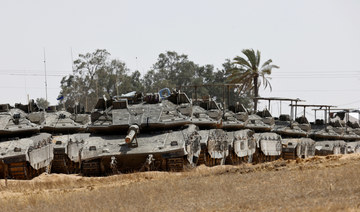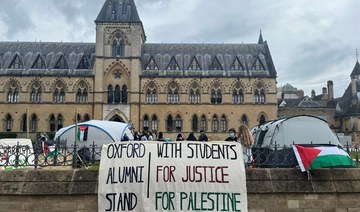KAMPALA: The mysterious Facebook blogger kept dishing up alleged government secrets. One day it was a shadowy faction looting cash from Uganda’s presidential palace with impunity. The next was a claim that the president was suffering from a debilitating illness.
For authorities in a country that has seen just one president since 1986, the critic who goes by Tom Voltaire Okwalinga is an example of the threat some African governments see in the exploding reach of the Internet — bringing growing attempts to throttle it.
Since 2015 about a dozen African countries have had wide-ranging Internet shutdowns, often during elections. Rights defenders say the blackouts are conducive to carrying out serious abuses.
The Internet outages also can inflict serious damage on the economies of African countries that desperately seek growth, according to research by the Brookings Institution think tank.
Uganda learned that lesson. In February 2016, amid a tight election, authorities shut down access to Facebook and Twitter as anger swelled over delayed delivery of ballots in opposition strongholds. During the blackout, the police arrested the president’s main challenger. Over $2 million was shed from the country’s GDP in just five days of Internet restrictions, the Brookings Institution said.
The shutdowns also have “potential devastating consequences” for education and health, says the Mo Ibrahim Foundation, an organization founded by a mobile phone magnate that monitors trends in African governance.
As more countries gain the technology to impose restrictions, rights observers see an urgent threat to democracy.
“The worrying trend of disrupting access to social media around polling time puts the possibility of a free and fair electoral process into serious jeopardy,” said Maria Burnett, associate director for the Africa division of Human Rights Watch.
In the past year, Internet shutdowns during elections have been reported in Gabon, Republic of Congo and Gambia, where a long-time dictator cut off the Internet on the eve of a vote he ultimately lost.
In Uganda, where the opposition finds it hard to organize because of a law barring public meetings without the police chief’s authorization, the mysterious blogger Okwalinga is widely seen as satisfying a hunger for information that the state would like to keep secret. His allegations, however, often are not backed up with evidence.
It is widely believed that Uganda’s government has spent millions trying to unmask Okwalinga. In January an Irish court rejected the efforts of a Ugandan lawyer who wanted Facebook to reveal the blogger’s identity over defamation charges.
“What Tom Voltaire Okwalinga publishes is believable because the government has created a fertile ground to not be trusted,” said Robert Shaka, a Ugandan information technology specialist. “In fact, if we had an open society where transparency is a key pillar of our democracy there would be no reason for people like Tom Voltaire Okwalinga.”
In 2015, Shaka himself was arrested on suspicion of being the blogger and charged with violating the privacy of President Yoweri Museveni, allegations he denied. While Shaka was in custody, the mystery blogger kept publishing.
“Who is the editor of Facebook? Who is the editor of all these things they post on social media? Sometimes you have no option, if something is at stake, to interfere with access,” said Col. Shaban Bantariza, a spokesman for the Ugandan government.
Although the government does not like to impose restrictions, the Internet can be shut down if the objective is to preserve national security, Bantariza said.
In some English-speaking territories of Cameroon where the locals have accused the central government of marginalyzing their language in favor of French, the government has shut down the Internet for several weeks.
Internet advocacy group Access Now earlier estimated that the restrictions in Cameroon have cost local businesses more than $1.39 million.
“Internet shutdowns — with governments ordering the suspension or throttling of entire networks, often during elections or public protests — must never be allowed to become the new normal,” Access Now said in an open letter to Internet companies in Cameroon, saying the shutdowns cut off access to vital information, e-financing and emergency services.
In Zimbabwe, social media is a relatively new concern for the government following online protests launched by a pastor last year. Aside from blocking social media at times, the government has increased Internet fees by nearly 300 percent.
In Ethiopia, where a government-controlled company has a monopoly over all telecom services, Internet restrictions have been deeply felt for months. The country remains under a state of emergency imposed in October after sometimes deadly anti-government protests. Restrictions have ranged from shutting down the Internet completely to blocking access to social media sites.
Just 30 days of Internet restrictions between July 2015 and July 2016 cost Ethiopia’s economy over $8 million, according to figures by the Brookings Institution. The country has been one of Africa’s fastest-growing economies.
Ethiopia’s government insists social media is being used to incite violence, but many citizens are suspicious of that stance.
“What we are experiencing here in Ethiopia is a situation in which the flow of information on social media dismantled the traditional propaganda machine of the government and people begin creating their own media platforms. This is what the government dislikes,” said Seyoum Teshome, a lecturer at Ethiopia’s Ambo University who was jailed for 82 days last year on charges of inciting violence related to his Facebook posts.
“The government doesn’t want the spread of information that’s out of its control, and this bears all the hallmarks of dictatorship,” Seyoum said.
African govts learn to block the Internet, but at a cost
African govts learn to block the Internet, but at a cost
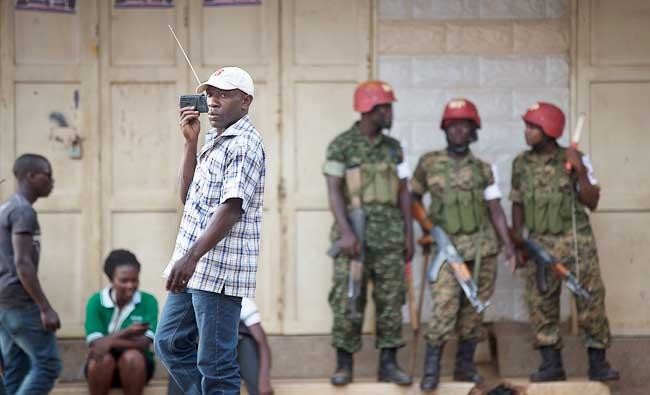
Ground invasion of Rafah would be ‘intolerable,’ UN chief warns

- Israel has killed more than 34,700 Palestinians, around two-thirds of them children and women, according to Gaza health officials
UNITED NATIONS, United States: A ground invasion of Rafah would be “intolerable,” UN Secretary-General Antonio Guterres said Monday, calling on Israel and Hamas “to go an extra mile” to reach a ceasefire deal.
“This is an opportunity that cannot be missed, and a ground invasion in Rafah would be intolerable because of its devastating humanitarian consequences, and because of its destabilizing impact in the region,” Guterres said as he received Italian President Sergio Mattarella.
UK military personnel’s data accessed in hack, BBC reports

- MPs could be informed about the development in the Commons on Tuesday
Some personal information in a payroll system used by Britain’s defense department has been accessed in a data breach, the BBC reported on Monday.
The system was managed by an external contractor and no operational Ministry of Defense data was obtained, the broadcaster said, adding that the department took the system off-line immediately.
Information like names and bank details of current and some former members of the Royal Navy, Army and Air Force was compromised, according to the report.
The Ministry of Defense did not immediately respond to a Reuters’ request for comment outside working hours.
MPs could be informed about the development in the Commons on Tuesday, the report added.
Russia says it takes control of two more settlements in eastern Ukraine
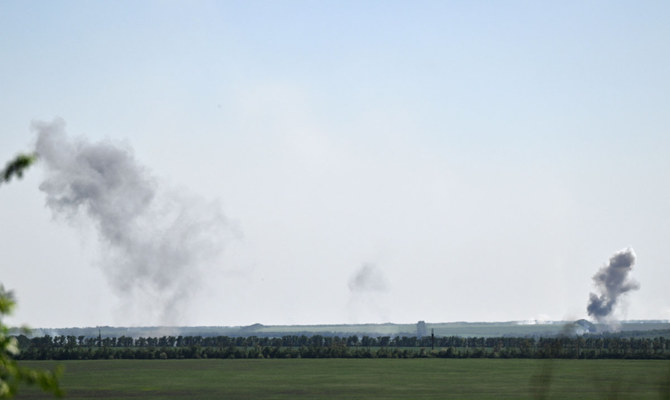
- Russia has made slow but steady advances since taking Avdiivka in February, with a string of villages in the area falling to Moscow’s forces
MOSCOW: Russian forces have taken control of the settlements of Soloviove in Ukraine’s eastern Donetsk region and Kotliarivka further north in the Kharkiv region, the defense ministry said on Monday.
Ukraine’s military made no mention of either locality in its evening General Staff report. Kharkiv Regional Governor Oleh Syniehubov said on Monday that Kotliarivka, located near the town of Kupiansk, was one of several locations to come under Russian shelling.
But Ukrainian bloggers appeared to acknowledge that both villages were in Russian hands.
DeepState, a popular forum on the war, noted on Saturday that Kotliarivka had been captured by Russian forces and on Sunday said the neighboring village of Kyslivka was also in Russian hands.
DeepState reported that Soloviove, northwest of the Russian-held town of Avdiivka, had been taken by Russian forces last week.
Russia has made slow but steady advances since taking Avdiivka in February, with a string of villages in the area falling to Moscow’s forces.
UNICEF warns 600,000 children face ‘catastrophe’ in Rafah
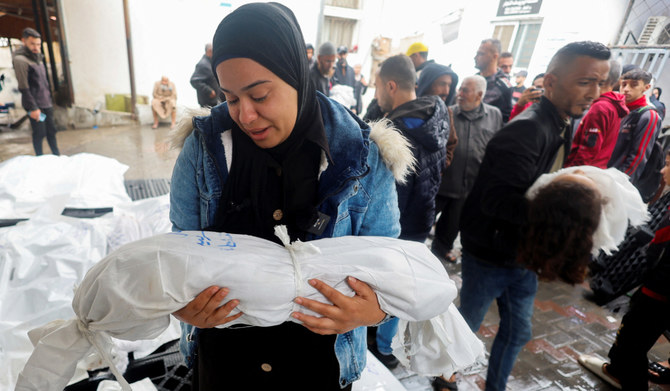
- Calling again for a ceasefire and safe access for humanitarian organizations, the agency highlighted there are some 78,000 infants under age two sheltering in the city, along with 175,000 children under five who are affected by infectious disease
- Israel has killed more than 34,000 Palestinians in Gaza, mostly women and children, according to the health ministry in the Hamas-run territory
NEW YORK: Some 600,000 children packed into Gaza’s Rafah city face “further catastrophe,” UNICEF warned on Monday, urging against their forced relocation after Israel ordered an evacuation ahead of its long-threatened ground invasion.
“Given the high concentration of children in Rafah ... UNICEF is warning of a further catastrophe for children, with military operations resulting in very high civilian casualties and the few remaining basic services and infrastructure they need to survive being totally destroyed,” the UN children’s agency said in a statement.
It said Gaza’s youth were already “on the edge of survival,” with many in Rafah — where the agency said the population has soared to 1.2 million people, half of them children — already displaced multiple times and with nowhere else to go.
“More than 200 days of war have taken an unimaginable toll on the lives of children,” said UNICEF Executive Director Catherine Russell.
“Rafah is now a city of children, who have nowhere safe to go in Gaza,” she said, warning that a large-scale military operation by Israel would bring “chaos and panic, and at a time where (children’s) physical and mental states are already weakened.”
UNICEF estimates that Rafah’s population has swelled to nearly five times its normal figure of 250,000 residents.
Calling again for a ceasefire and safe access for humanitarian organizations, the agency highlighted there are some 78,000 infants under age two sheltering in the city, along with 175,000 children under five who are affected by infectious disease.
Gaza’s bloodiest-ever war began following Hamas’s unprecedented Oct. 7 attack on Israel.
Israel has conducted a retaliatory offensive that has killed at least 34,735 people in Gaza, according to the Hamas-run
territory’s Health Ministry.
Of that toll, more than 14,000 are children, the ministry has said.
Israeli Prime Minister Benjamin Netanyahu has vowed to send ground troops into Rafah regardless of any truce, despite concerns from the US, other countries, and aid groups.
Hamas official Izzat Al-Rashiq said in a statement that any Israeli operation in Rafah would put the truce talks in jeopardy.
Senior Hamas official Sami Abu Zuhri said the evacuation order was a “dangerous escalation” that would have consequences.
“The US administration, alongside the occupation, bears responsibility for this terrorism,” the official said.
Hamas said later in a statement that any offensive in Rafah would not be a “picnic” for Israeli forces and said it was fully prepared to defend Palestinians there.
Aid agencies have warned that the evacuation order will lead to an even worse humanitarian disaster in the crowded coastal enclave of 2.3 million people reeling from seven months of war.
“Forcing 1 million displaced Palestinians from Rafah to evacuate without a safe destination is not only unlawful but would lead to catastrophic consequences,” British charity ActionAid said.
Nick Maynard, a British surgeon trying to leave Gaza on Monday, said in a voice message from the Gaza side of the Rafah crossing into Egypt: “Two huge bombs have just gone off immediately outside the crossing. There’s a lot of gunfire as well about 100 meters from us. We are very unclear whether we will get out.”
“Driving through Rafah, the tension was palpable with people evacuating as rapidly as they could.”
Witnesses said the areas in and around Rafah where Israel wants to move people are already crowded with little room for more tents.
“The biggest genocide, the biggest catastrophe, will take place in Rafah. I call on the whole Arab world to interfere for a ceasefire — let them interfere and save us from what we are in,” said Aminah Adwan, a displaced Palestinian.
Israel has been threatening to launch incursions in Rafah, which it says harbors thousands of Hamas fighters and potentially dozens of hostages.
Victory is impossible without taking Rafah, it says.
New York’s Columbia University cancels graduation ceremony as students remain defiant

- Pro-Palestinian protests put paid to event planned for May 15
NEW YORK: New York’s prestigious Columbia University has announced that it is canceling its main graduation ceremony, scheduled for next week, because of ongoing pro-Palestinian protests.
The announcement on Monday is the latest development in a movement that began nearly three weeks ago at Columbia and has swept college campuses nationwide.
The graduation ceremony had been scheduled for May 15 on the south lawn of the Manhattan campus, where protest encampments had been based before authorities dismantled them last week.
The Ivy League institution said it would “forego the university-wide ceremony” and hold a series of smaller events instead.
“We are determined to give our students the celebration they deserve, and that they want,” Columbia announced, saying “smaller-scale, school-based celebrations are most meaningful to them and their families.”
The university added: “We will focus our resources on those school ceremonies and on keeping them safe, respectful, and running smoothly. A great deal of effort is already underway to reach that goal.”
Students across the US have protested and set up tents at dozens of universities to register their opposition to the war in Gaza, while calling on President Joe Biden to do more to stop the bloodshed.
They have also demanded their institutions cease supporting companies that support Israel’s government.
Maya James, a psychology student at Columbia, told Arab News: “Seeing the university’s really insane response to student protests has brought so many people together, because I feel like most people on this campus can agree, including faculty, that students should not be penalized for expressing their First Amendment rights to protest, to petition, to do all of these things we’ve been encouraged to do for so long.”
She called on the university to give amnesty to students who had been suspended for expressing their First Amendment rights, which protect freedom of speech, the press, assembly, and the right to petition.
James also called on the university to disclose its investments because as “of right now there’s no visibility for us students to be able to know what the university is expected to do.”
She described the “vibes” at the protest sites as “absolutely remarkable,” with cultural and educational programs being offered and all kinds of activities being held.
She said the demonstrations were a continuation of Columbia’s long tradition of protest which began in the 1960s with its opposition to the involvement of the US in the Vietnam War.
James said it was “incredible” to see the solidarity for the Palestinian cause spread in campuses across the US, and people pushing to ensure “that we do indeed see a free Palestine within our lifetime and that our universities are no longer complicit in the genocide.”
Demonstrators have gathered on at least 40 US university campuses since April 17, often erecting tent camps to protest against the soaring death toll in the Gaza Strip. Nearly 2,000 people have been detained, according to the US media.
Police officers have forcibly ended several student sit-ins in recent days, including one at New York University at the request of its administrators.
Demonstrators had barricaded themselves inside Columbia, the epicenter of student protests in New York, and some complained about police brutality when officers cleared the faculty.
(With Agencies)



